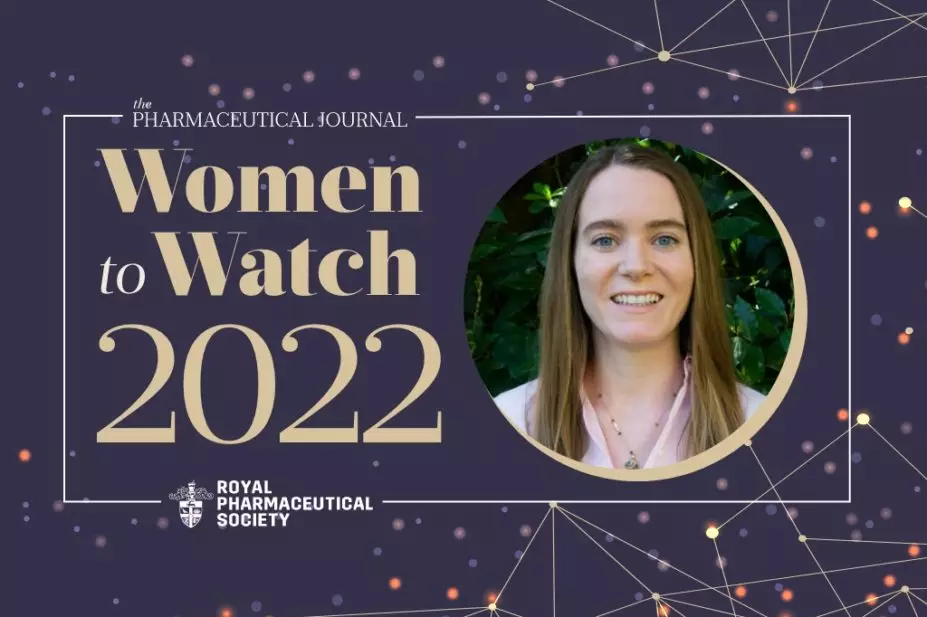
Laura McCoubrey / Shutterstock.com
There are not many PhD students who have 21 publications and 260 citations to their name while they’re still only three-quarters of the way through their studies, but Laura McCoubrey is no ordinary student.
McCoubrey’s nominator said that she has brought “outstanding creativity, tenacity and leadership” to her research team and her specialist field of identifying interactions between medicines and the gut microbiome.
Achievements to date include designing a colon-targeted formulation that “delivers the benefits of probiotics without the need for live bacteria” and publishing previously unknown cases of drug metabolism by the microbiome. Throughout her work, she has shown “exceptional ability” to use her pharmacist training in planning impactful research projects, her nominator adds.
A registered pharmacist, McCoubrey spent a year working in a band 6 role in a hospital before shifting to the research that both intrigued and excited her in 2019. It was a book on the gut microbiome recommended by a colleague that made her realise what she most wanted to study in her PhD, which is sponsored by Pfizer and funded by the Engineering and Physical Sciences Research Council. Quite the challenge, as she had no previous experience in microbiology.
When the COVID-19 pandemic hit and her lab at University College London was closed for several months, McCoubrey’s willingness to problem-solve came to the fore; she took the opportunity to find out more about machine learning and taught herself how to code.
“It was a lot of learning on YouTube and doing online courses, and slowly it did come. It’s a great tool and it does sound very overwhelming to get into but it’s I think it’s actually easier to pick up than maybe people think.”
She is spending the autumn working in a US laboratory at Duke University in North Carolina, after applying for and securing a competitive £7,500 fellowship in machine learning. It is helping her take her self-taught coding to the next level, she says. “It’s been great to be able to come here and learn from the machine learning specialists and my coding has got so much better.”
The advanced techniques McCoubrey is working on will help to characterise and predict the effects of drugs on intestinal bacteria in relation to disease. The goal is to identify positive or negative drug–microbiome interactions to guide new microbiome-targeted medicines or microbiome friendly drug development.
My career so far has taught me a lot about resilience and that it never works out the way you think it’s going to
She clearly makes the most of all opportunities that come her way, doing a six-week research project at the University of Lille, France, in 2021 in collaboration with a company in Belgium. The work, on developing a treatment for gut microbe imbalances or ‘dysbiosis’, has continued and is moving into animal studies in December 2022.
“We’re learning more every day about how connected the gut microbiome is to health, McCoubrey explains. “If we can use the big data we’re getting out of the studies in the best way, then hopefully we can get new therapies coming through faster and we can make sure that therapies work or are targeted to the gut microbiome. It’s a really exciting and new field to be part of.”
This is just the start of big things to come for McCoubrey, who would love to move into working for a large pharmaceutical company in the UK, using her machine learning skills to work on active drug pipelines. “At some point, I’d like to go into a microbiome-focused start-up, but I used to be someone with a very rigid five-year plan and the PhD and my career so far has taught me a lot about resilience and that it never works out the way you think it’s going to.”
Whatever the future, the part she enjoys most is knowing that the problem-solving she is doing will have an impact in the clinic. “My research group is quite translational, so it’s quite easy to see how the problems that we’re solving could actually help patients in the future.”
One key aspect to Laura’s nomination is the work she is doing to guide other young researchers with “enthusiasm and patience”. To date, she has mentored six Masters students and three PhD students. She is also an equality, diversity and inclusivity representative at her university, and has helped shape new policies to increase the diversity of PhD applicants.
“I believe that science is fundamentally better when all types of people are supported to contribute to it, especially in a field such as pharmacy that seeks to make new medicines to treat many types of people,” she says. “Pharmaceutical research has historically not been very diverse, but things are changing for the better. I am proud to have helped change hiring policies for my PhD centre to create a more level playing field.”
Panel comments
“Wow, what a nomination. Very impressive”
“She has done some impressive work trying to diversify research”
“Laura seems like the whole package: brave, talented and able to make her research count”
Meet the rest of The Pharmaceutical Journal’s Women to Watch 2022 here
You may also be interested in

Pioneering pharmacy professionals celebrated in 2022 ‘Women to Watch’ list

Andreea Blaga
